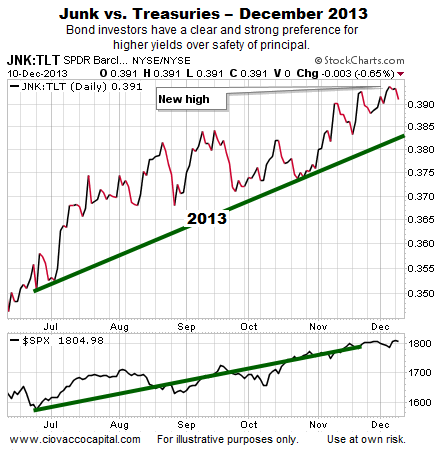How About that Stock Market
Post on: 30 Май, 2015 No Comment

We havent been talking about stocks much on Mr. Money Mustache recently, and that is for good reason. Despite the tendencies of the TV news to report on the movements The Dow as if it were a sports team, there really is no reason for wealthy people like ourselves to follow the mostly-meaningless fluctuations of stock prices.
But since the index (and its more useful big brother the S&P 500) has recently been hovering around its all-time high (a high first reached in March, 2000 and then again in October, 2007), there is naturally more curiosity, excitement and fear buzzing about the subject than usual. Lets take a look at the price history of the S&P 500, on this graph which just coincidentally covers my entire life:
Stock market index price since the Disco era. But this graph is misleadingly pessimistic it does not account for dividends, which are at least half of the reason we buy stocks around here.
A Fortune Teller might interpret that graph with pretty scary results: every time it gets to this level, it crashes for another 6-7 years!
Should we be scared? The answer depends on your level of understanding of investing itself. Consider the following perspectives Ive heard from various people over the past month:
- I am very risk-averse, so Im afraid to invest in stocks. I have $100,000 sitting in 1% interest savings accounts, even though I have a big mortgage.
- I sold all my stocks a few months (or years) ago. Im waiting for a crash, then Ill re-invest.
- I believe the market is overvalued, so while I am leaving 401(k) deductions on automatic and not selling anything, I am using extra cash to pay down my 4.5% mortgage for now instead of buying more stocks. Will re-evaluate if there is a crash.
- I use rental real estate as my primary investment vehicle. In my area, this returns 10% or more after inflation, making the stock market a distant second choice for me.
The first person is clearly not headed for financial success with that strategy. With returns less than half the rate of inflation, she will never reach true financial independence. Every dollar you own is an employee that can work around the clock for you without complaint provided you give it the opportunity.
Person #2 is playing with fire. He believes he can outsmart the collective intelligence of the worlds investors, and time the crashes and upward spikes. The reason this is a statistical losing game is that he will miss out on dividends during times he is out of the market, incur extra trading costs, and tend to mis-time some of the market moves, losing precious percentage points.
Person #3 may have a valid case, provided she has correctly identified an expensive stock market. A 4.5% return via paying off a mortgage is a very nice hedge against volatile stocks, as it is guaranteed. But once she is out of debt, shell need to continue investing somewhere else to avoid amassing a mattress full of idle dollar bills at this point, shell need to invest in something with solid above-inflation returns.
Person #4 may be the winner. for now. In certain cities, US housing continues to be among the cheapest in the rich world when measured on a price-to-rent ratio. Thats why my own next investment will probably be in another rental house. But note that Im not selling stocks to do it for me, that would be putting too many eggs in one basket.
So where does this leave us? It depends on what point you are starting from. For those uncertain about investing and stocks in general, Id like to present an entertaining 16-part series on the subject from my fellow early retiree pal Jim Collins, who writes about Business, Money and Life over at jlcollinsnh.com. You see, spring time is here in Colorado, and that means I am finding it increasingly difficult to spend time inside with the computer. But now you can bookmark this list, and work your way through them (and the rest of his blog) during the inevitable slack times on Mr. Money Mustache. Thanks Jim!














